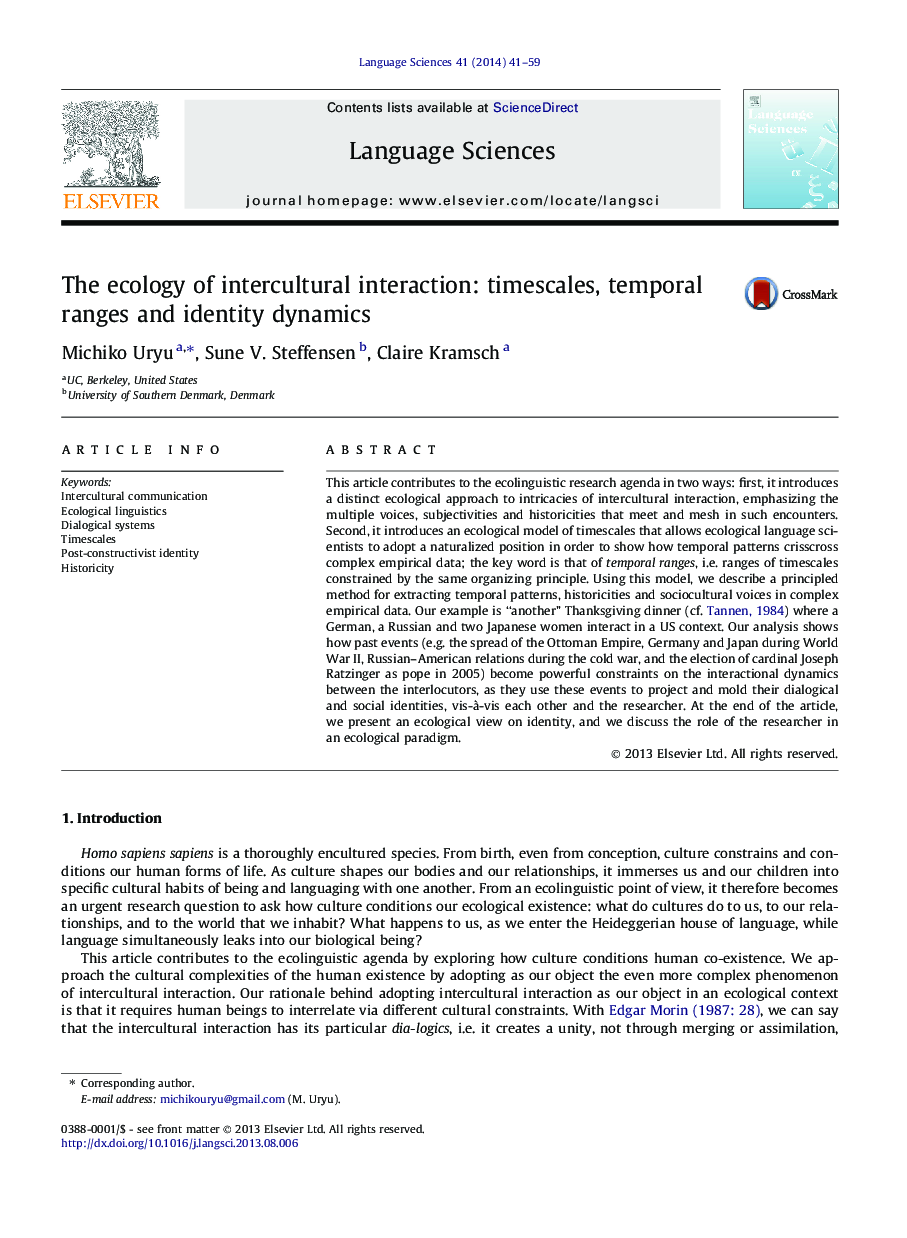| Article ID | Journal | Published Year | Pages | File Type |
|---|---|---|---|---|
| 1103223 | Language Sciences | 2014 | 19 Pages |
This article contributes to the ecolinguistic research agenda in two ways: first, it introduces a distinct ecological approach to intricacies of intercultural interaction, emphasizing the multiple voices, subjectivities and historicities that meet and mesh in such encounters. Second, it introduces an ecological model of timescales that allows ecological language scientists to adopt a naturalized position in order to show how temporal patterns crisscross complex empirical data; the key word is that of temporal ranges, i.e. ranges of timescales constrained by the same organizing principle. Using this model, we describe a principled method for extracting temporal patterns, historicities and sociocultural voices in complex empirical data. Our example is “another” Thanksgiving dinner (cf. Tannen, 1984) where a German, a Russian and two Japanese women interact in a US context. Our analysis shows how past events (e.g. the spread of the Ottoman Empire, Germany and Japan during World War II, Russian–American relations during the cold war, and the election of cardinal Joseph Ratzinger as pope in 2005) become powerful constraints on the interactional dynamics between the interlocutors, as they use these events to project and mold their dialogical and social identities, vis-à-vis each other and the researcher. At the end of the article, we present an ecological view on identity, and we discuss the role of the researcher in an ecological paradigm.
